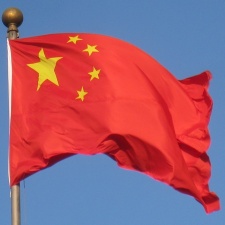The Chinese government is set to implement new regulations on the games industry in a move that could signal the end of a block on new game licences in the country.
A new regulatory body - the State Administration of Radio and Television (SART) - was formed in March to approve game releases. However, since March 28th no new licences have been granted.
The continued suspension of new releases is likely to have a huge impact on the valuation and growth of the global mobile games industry - with China its largest market.
The reason for the block on approvals was not clear, though it's been suggested the restructuring of the government body could be why. While new games have been released in China during this period, those approvals came before the current suspension.
New restrictive policies
Before new licenses are given again, further regulations on the games market are afoot.
According to market research firm Niko Partners, China’s Ministry of Education has now issued a new notice that aims to prevent myopia - near-sightedness - among children and adolescents.
This is said to be due to the increase among minors of the internet and gaming. Various recommendations have been given to regulatory bodies in an effort to reduce the myopia rate amongst children and adolescents by five per cent each year through to 2023.
One recommendation sent to SART includes the strengthening of existing policies to limit the amount of time children play online games. Tencent has previously found itself on the end of these regulations, when it was forced to limit gameplay for under 17s to two hours a day and under 12s to one hour.
Another recommendation was for the implementation of an age rating system for games. While Niko Partners notes one is already in use that uses a coloured classification system, it is not enforced.
Limited new releases
Lastly, the Ministry of Education has called for a limit on the number of new game releases.
It’s not currently clear exactly what the limits would be and how much of an impact this might have on the market. Niko Partners said 8,202 mobile games were approved in 2017, out of 8,561 games overall.
The market research firm anticipates the restrictions will most likely fall on the mobile games industry and/or poker and mahjong titles. The recommendations are unlikely to affect PC, console or core esports and mobile RPGS, it claimed.
A detailed policy is not expected until the end of September at the earliest. It is hoped games licensing will resume thereafter.
“We think that if the third recommendation is implemented, smaller game companies with only a few potential hit titles would suffer more than larger ones,” read a statement from Niko Partners.
“The top game companies would continue to strengthen their positions, as they have more triple-A games, and more resources to support the game approval process.
“The export game market is more competitive, so more middle and small companies could go under if their game is not approved for domestic distribution.”

















